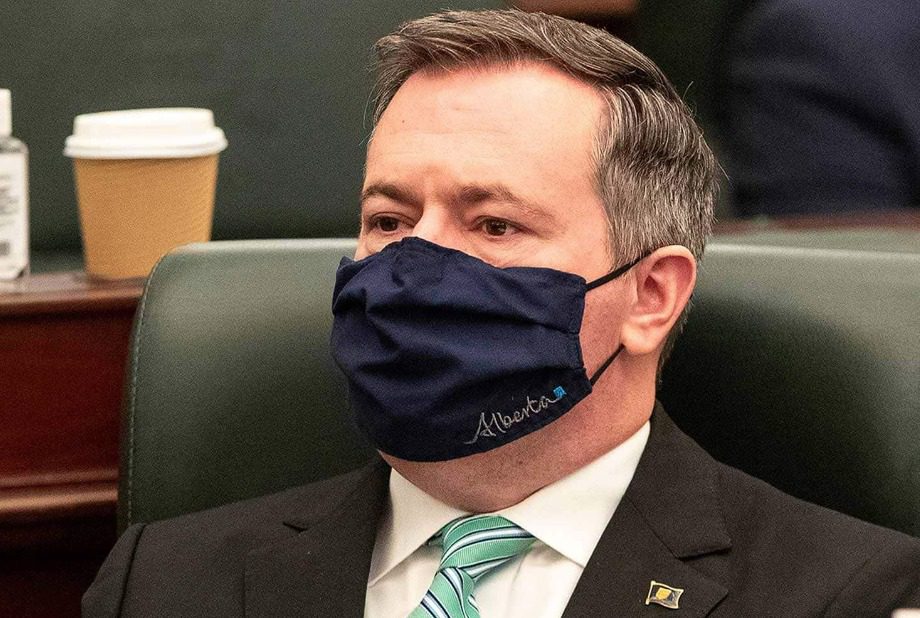"Batten down the hatches," says captain Jason Kenney, as Alberta encounters more stormy weather on the Covid front.
It appears that someone spilled coffee on the premier's navigational charts, as he zigzags through what appear to be endless shoals and doldrums with a slightly wobbly hand on the tiller.
The latest return to Step One of Covid restrictions was necessitated by the undeniable climb in Covid cases. Alberta tops the provinces in cases per 100 population. Problematic variants are on track to become the dominant strain of cases.
An outbreak of the Brazil variant, fuelled apparently by travel and workplace spread, is particularly worrisome.
Despite all the signs last week, Kenney waited until after the Easter long weekend to re-institute restrictions. Albertans can't dine indoors; libraries are closed; more restrictions are back on at gyms; no indoor socializing.
But Albertans can still get haircuts; schools are still in session; retail stores, albeit with a 15 percent capacity limit, are still open.
Restrictions are frustrating but necessary. It's the inconsistencies that are driving Albertans crazy.
No one thinks it's easy to deal with a pandemic that has endless surprises of its own. But the weariness of trying to parse all the steps and phases that the government announces and changes with such regularity is getting people down.
Finally, the authorities did send one clear message this week in the midst of all the confusion.
Grace Life Church, a rebel congregation east of Edmonton which has refused to respect health regulations for months, was shut down. Police erected roadblocks and a fence around the building.
Government messaging on vaccinations has also taken a subtle course correction this week.
The pace of injections is being accelerated as more vaccine comes into the province. After months of bleating about the federal government's inability to provide vaccines fast enough, Kenney has stopped complaining. Reports that in fact the province vaccination efforts are now falling behind the supply appears to have dampened his enthusiasm for Ottawa bashing.
Kenney is, of course, also trying to steer around political rocks which could rend his United Conservative Party asunder.
The right fringe of the party is increasingly in revolt over Covid restrictions. Even this week's light lockdown is spurring more complaints from that cohort.
Kenney acknowledges even his caucus isn't united on restrictions. He tried to paper over the issue by telling reporters this week that he welcomes the debate in caucus ranks.
Three backbench MLAs came out right after the restriction announcement to say their constituents are not happy and neither are they.
"Alberta, like Texas, Florida or South Dakota, could be the beacon of opportunity, freedom, choice and the protection of civil liberties," argued Medicine Hat MLA Drew Barnes.
Kenney's political opponents are watching that rebellion with some delight. NDP Leader Rachel Notley told an interviewer this week that there should be no room for debate in a government caucus when lives are at stake.
Surely public health should rank right up there with unity over the provincial budget in terms of caucus discipline.
Kenney is also mindful of the majority sentiment in the province that, if anything, the government should be a bit tougher with its Covid efforts.
It's becoming harder and harder for the premier to find a way through. The traditional blaming of Ottawa is of necessity coming to an end. He has started proclaiming that the province has done better on the Covid front than much of Europe and some states in the U.S.
Eventually enough Albertans will be vaccinated to turn the tide. The question for Kenney is how much of the shore will have disappeared to erosion by the time that happens.
Photo Credit: Calgary Herald






